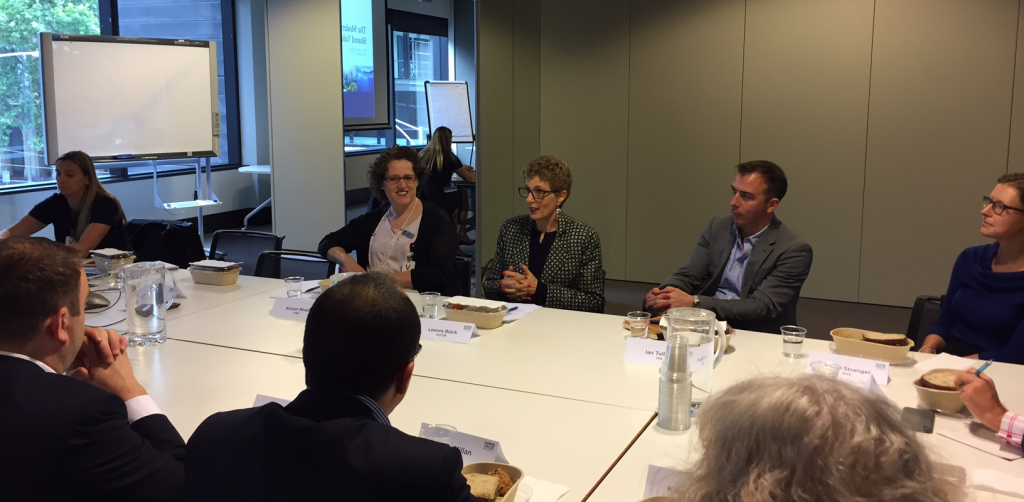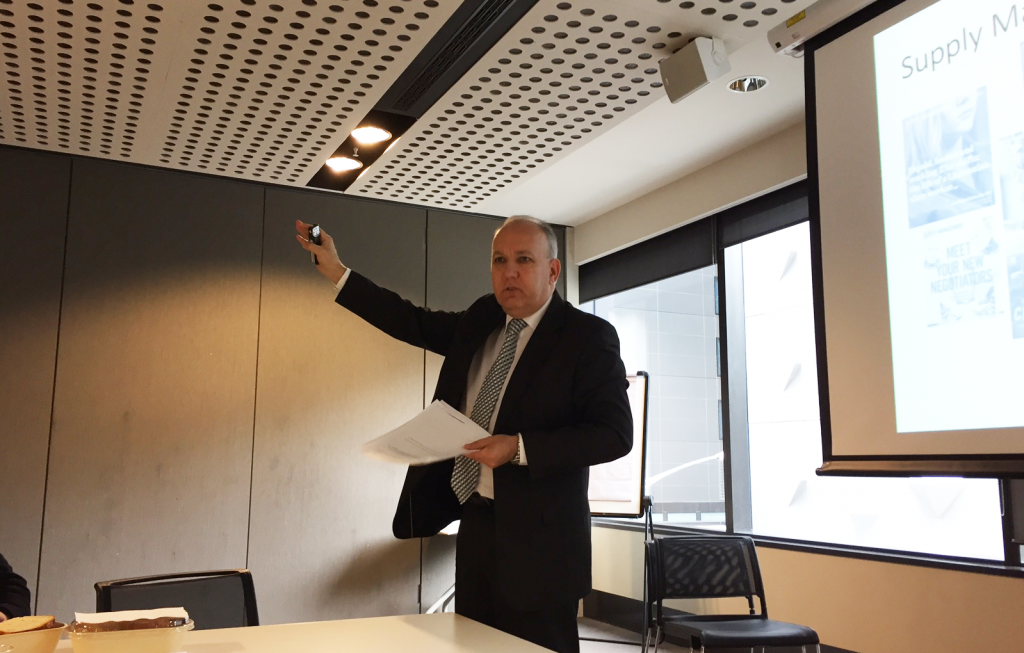
Leeora Black (third from right), Managing Director, ACCSR, discussing Modern Slavery Act at SVP’s first member-only event.
SVP conducted its first member-only thought leadership event with host IAG, on Wednesday 2 November. Opening the series was the discussion on Procurement and Modern Slavery Act.
Ian Tulloch, Manager, Category Management, IAG, presented the opening remarks and Helen Steel, Executive Director, SVP and moderator for the session, welcomed speakers Leeora Black, Managing Director, Australian Centre for Corporate Social Responsibility (ACCSR) and Mark Lamb, General Manager – Asia Pacific, Chartered Institute of Procurement & Supply (CIPS).
Ms Black started the session by setting the context for the Modern Slavery Act – defined as: including, but not limited to, forced labour, child labour, bonded labour, human trafficking, domestic servitude, orphanage trafficking, sex trafficking, forced marriage, slavery and other slavery-like practices. Any of these can happen in the supply chain of businesses.
Risk prioritisation approach
In the complex web of supply chain processes that don’t always mirror a clear linear course, how does the concept of shared value come into place?
Michael Porter’s Redefining productivity in the value chain, states that the framework for Creating Shared Value analyses the value chain from the perspective of societal as well as economic value.
In Australia, big companies are generally open to the inquiry. Ms Black added that big corporations should collaborate with NGOs at the origin of the supply chain. Some examples of big corporations globally that have taken on the role to comply are Marks and Spencer, Unilever and Cocoa Cola.
Ms Black added that should companies that there is something wrong with their supply chain, the response will not be to stop business, but for companies to work collaboratively with suppliers.
 Mark Lamb, General Manager – Asia Pacific, CIPS presenting on procurement and supply chain management.
Mark Lamb, General Manager – Asia Pacific, CIPS presenting on procurement and supply chain management.
First steps
Mr Lamb shared that licensing the profession, in particular, with procurement, mitigates the risk of poor practices.
“The Modern Slavery Act is not just about the UK or Australia. This is not just between two countries. This involves everyone,” said Mr Lamb, highlighting that aside from domestic checks and balances, the supply chain often involves suppliers that are located internationally.
“Without good procurement practice, the money goes to the wrong hands,” he added.
Citing examples of countries like France, which practices the due diligence requirements on multinationals, the approach that they’ve used has been one that’s encouraging in sharing best practices amongst companies.
Standardisation
Risk assessment tools and international certifications like the ISO 20400 can provide good guidelines for companies looking to delve deeper into the procurement processes down their supply chain. Ms Lamb said that ecolabels may flourish in the coming years which will pose as good benchmarks for companies to assess their supply chain activities and management.